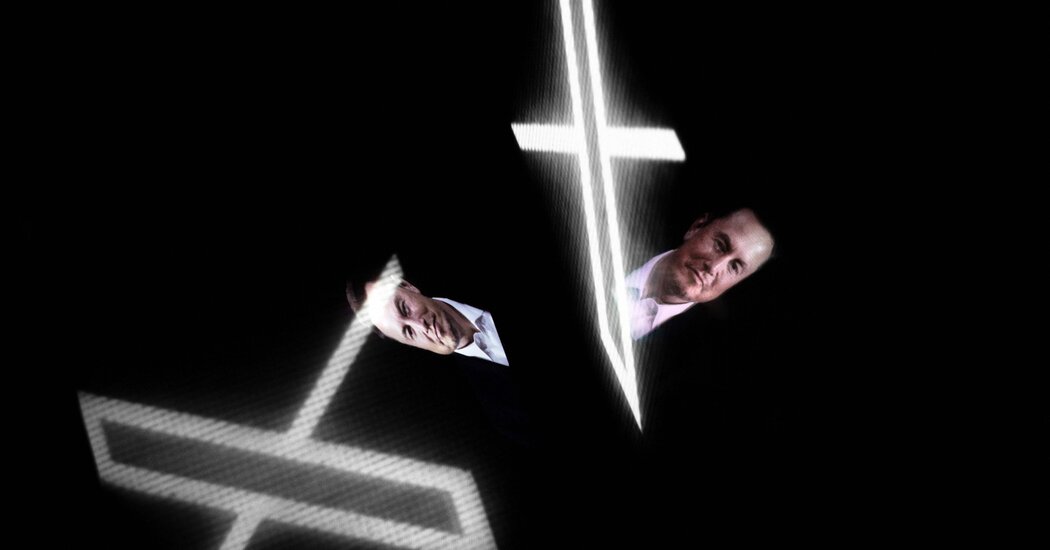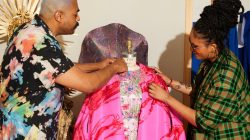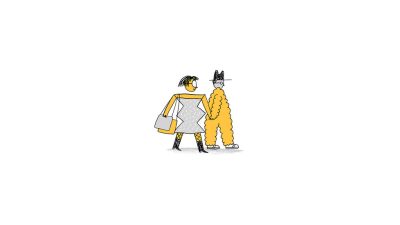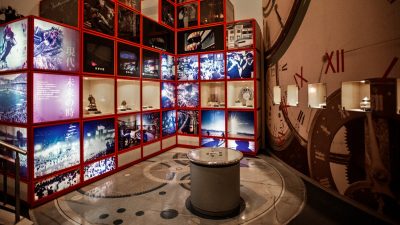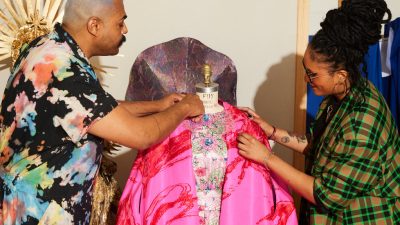The letter has its obvious appeals. X is a versatile shape — one of the few capital letters to remain symmetrical whether bisected vertically or horizontally (the others: H, O and I). It’s legible no matter how you flip it. It signals a stop. A mark on a map. A movie too outrageous to give a rating. It’s the stuff of revolutionaries (Malcolm X) and punks (X, the band). It stands in for a kiss, and represents an unknown quantity in mathematics. XXX is porn — the first true currency of the internet. X can be the hidden conspiracy of “The X-Files,” or the shorthand for the drug Ecstasy, popular with ravers in the ’90s.
On Monday, Twitter unveiled its new name, and with it, a new logo. The unfurling of the new branding had the same chaotic energy Elon Musk has brought to every step of the journey since he bought Twitter last October. As users on X (formerly referred to by some, semi-affectionately, as “the bird app”) adjusted to their new surroundings, there were many questions to ponder. Like for example: If it wasn’t called Twitter any more, were the posts still tweets? What is the sound of an X flying through silicon? A zing? And why did Mr. Musk choose it?
His age might have something to do with it. In the 1990s, X reigned supreme, after Douglas Coupland’s 1991 novel “Generation X: Tales for an Accelerated Culture” permeated the lexicon.
“We were in our 20s when we were named Gen X,” Anthony Sperduti, 50, founder of the branding studio Mythology, said. “So maybe X sounds good to us, because it seeped into our brain.” At 52, Mr. Musk falls right into that demographic.
For marketing purposes in the 1990s, X had a certain cool. It conferred a rejection of authority — you could imagine Bart Simpson with a marker writing X’s on the walls of his bedroom — while also being co-opted by mass consumerism. X was the symbol for generic products, so X could be both rebellious and mass-produced.
Big business got in on the letter, too, as it tried to bottle the alternative energy of the decade. The X Games started in 1995, a shorthand for “extreme,” a term used to describe sports like snowboarding, which was allowed into the Olympics only in 1998. The Xbox video game console came in 2001.
Musicians and hipsters applied the letter liberally as they created companies. Eli Bonerz and Adam Silverman opened the clothing store XLARGE (a favorite of the Beastie Boys) in Los Angeles in 1991. Kim Gordon and Daisy von Furth started their clothing brand X-Girl in 1994.
But X has its limitations.
“It’s not meaningful as an identity,” Michael Rock, 64, a partner at 2×4, a branding consultancy based in New York and Beijing, said of the new logo. “It’s meaningful as a negation or a cancellation. A crossing out.”
Still, Gen X was the first generation to have a letter as a name, and even if they didn’t love the moniker, they took pride in being undefinable. In any case, the name stuck. And it seems to have truly stuck longest and strongest in Mr. Musk’s psyche. (Mr. Musk did not respond to a request for comment.)
Indeed, Mr. Musk seems to have something of a fixation with the letter X. He named his rocket company SpaceX, a Tesla the Model X, and one of his own children X Æ A-12, or X for short. Mr. Musk’s second company, X.com, emerged in the X-still-having-a-moment year of 1999 before merging with another company and becoming PayPal in 2001.
As a single letter, X had little competition for branding till 1998 when Apple unleashed the lowercase i in the naming of the iMac. Compared with the violent slash of X, the i was optimistic, self-referential and cheerfully anthropomorphic — the little dot like a head perched above a pert, standing body ready to take over the world. A millennial letter, you might say, there to replace the self-defeating X and its latchkey energy.
By branding everything he touches with X it’s as if Mr. Musk is begging the world to remember his prime years when he was starting to build his empire. (Not a very stereotypically Gen X instinct.)
In a way, Mr. Rock said, “it’s a non-choice, the suspension of narrative to be supplied later.” He felt the actual logo the company put on the site as a place holder was beside the point. “Perversity seems to be at the heart of it.”
Mr. Rock likened it to “a leather motorcycle jacket at a Tesla launch,” more akin to the Xbox or X Games branding than any of the more authentically counterculture uses from the 1990s.
“I can imagine it appeals to Elon Musk’s persona as alternative, edgy, mysterious or punk, but it comes across as tech-bro cringe,” he said.
In the end, if Mr. Musk succeeds in making X into “the everything company” he wants it to be, the logo won’t matter. And that’s perhaps the most Gen X outcome of all.
Sumber: www.nytimes.com
